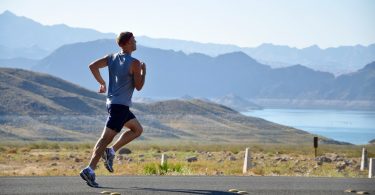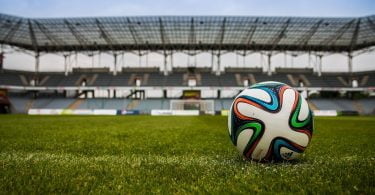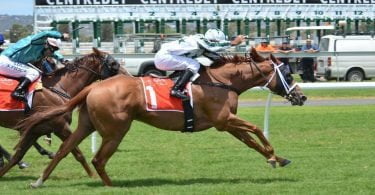There is now no means of absolution.
There is now no means of absolution. The cycling generation of the nineties and early Twenty-First Century were but a facade of miraculous human endeavour; it was little more than a drug-induced fantasy land. One by one, the once exalted Pyrenees-scaling giants of that epoch have been incriminated as users of Performance Enhancing Drugs. 1997 Tour Winner Jan Ullrich, Testosterone jacking Floyd Landis, and the late swashbuckling Italian, Marco Pantani, are just a selection of the myriad men exposed as authorities got to grips with Cycling’s shrouded underworld.
However, there has always been one light in the otherwise bleak illusion that was Nineties Pro-cycling; the apparently untouchable and bulletproof Lance Armstrong. The man is the most decorated cyclist in history, securing seven Tour de France coronations in successive years all after overcoming cancer in 1996; odds of survival were a morbid twenty percent. Whether it was surmounting the sweeping hairpins of the Alpe D’Huez, or outlasting the virulent agent that invaded his brain and lungs in 1996, Armstrong has always emerged from battle unflustered and completely unblemished. Now Armstrong, who retired for the final time in 2011, is a pivotal ambassador and conceiver of the cancer fund-raising charity, ‘Livestrong’, serving as the embodiment of hope for thousands of sufferers of the disease around the world.
Presently, as in the past, the man who Forbes magazine once dubbed ‘a secular Jesus’ can do no wrong.
The shroud of the underworld lifts once more.
No matter how much benevolence Armstrong seems to administer in his campaign on cancer, he can not shake the doping allegations that have dogged him since his first tour win in 1999. The last two years have witnessed much credibility drain from Armstrong, as public consensus has begun to deviate from the righteous path of pro-Lance advocacy, towards the previously unthinkable incrimination of the All-American hero. The charges levelled against him in the last week by the US Anti-Doping Agency, could well spell the crucifixion of sport’s answer to ‘The Good Shepherd’.
Brought to the stocks on account of at least ten former cyclist’s first-hand accounts of Armstrong’s doping practices, plus evaluation of blood samples taken from Lance during his comeback Tour’s of 2009 and 2010, the Texan was, for the first time in his career, shackled by a competitive ban on all professional sporting activities. This prohibited Armstrong from competing in this month’s Ironman triathlon, an event in which his participation would once more have reaped prodigious funding for cancer treatment ventures. The halo is slipping.
This sanctioning of Armstrong is in no way revelatory. As recently as 2010, former team-mates Floyd Landis and Tyler Hamilton candidly aired their experiences of Armstrong’s injection of EPO on American TV show, 60 minutes. EPO is a drug which boosts the level of red blood cells in the bloodstream, elevating the degree of oxygen one’s muscles receive, thus diminishing the amount of fatigue a cyclist experiences: pretty handy if you wish to navigate the Champs-Elysees in the fabled Maillot Jaune. The whistleblowers, Landis and Hamilton, also recounted Armstrong’s mid-tour blood transfusions in shady French hotels and provincial side-roads, mobilising a sceptical, ambivalent American public. Faith began to wane in the Church of Armstrong.
To the latest sanctions Armstrong has riposted with his typical vehemence and defiance. He showcases his resume as the most tested international athlete on the planet; all inquisitions of which have conjured no evidence to impeach the Great Texan. Furthermore, Lance chastises the purported witnesses to his doping, ascribing their sudden candour to their desire for immunity gifted by the USADA upon their own chemical misdemeanours. In Nineties cycling, the pot often called the kettle black, even when both were brimming with juice.
So what makes these latest legal assaults any more legitimate?
The USADA always get their target. If they have declared publically that charges have been issued, they must unequivocally contend that Armstrong has cheated, is fraudulent, and can be proven so. This is the administration that cuffed the infamous drug felons of yesteryear. Who could forget the tearful mea culpa delivered by 100m icon Marion Jones once she was roughed up by the American doping sheriff? Make no mistakes, Lance is keenly aware of the stature of his opposition; they are tougher than Ullrich and more relentless than Alexandre Vinokourov.
But let it be known that at present we can only speculate as to the guilty party in this unsavoury saga. Are the USADA the latest passenger on the Armstrong ‘witch-hunt’ bandwagon? Or has Captain America been bare-facedly concealing his tainted ascension to Sporting divinity?
I for one have only leaned towards atheism in the last week. Until this juncture, Lance has adorned my wall of fame in each and every University lodging; I’ve even taken onboard virtues such as ‘turn every negative into a positive’ from his best-selling book ‘It’s not about the Bike’. Equally, I read his views on doping. The assertion that to put intravenous chemicals into his body after his stints of chemotherapy seemed sickening was highly rational to me.
So why I am calling his bluff?
Lance rode in an era where the preponderance of the peloton was ‘riding dirty’. Put simply, if you wanted success in the later Nineties and early Twentieth-Century in professional cycling, you need look no further than the sharp point of a syringe. EPO gave competitors an on average 5% performance advantage; if you weren’t on it, you weren’t on the podium. Furthermore, Lance is as determined an individual as one could manufacture. Cut from the robust cloth of Plano, Texas, if he knew his competitors had an edge, I believe he would have sacrificed anything to rectify the power balance in his favour. Perhaps he sold his armour of moral rectitude for a shot at the Maillot Jaune.
Maybe, myself, like the majority of Pro-cycling fans have been rendered cynical by a sport whose recent past warrants a life sentence. Maybe my naivety has momentarily gone, and Lance will rise once again to conquer all, discrediting the fiendish accusations whilst facilitating his disciples continued devotion and worship. More likely a lengthy court-case will ensue, and his doubters will hound him till his day of passing.
I for one will wish like many others for his seemingly improbable exoneration.
Many articles documenting the episode have sought to question the relevance of his unmasking now? What can we gain from harassing his glorified past? Surely, his humanitarian efforts and charity endeavours are the actual measure of the man?
It is undeniable that what Lance Armstrong has accomplished for awareness and response to cancer globally should be enough to have him sainted, knighted and consecrated outside the ‘Livestrong’ Foundation for posterity. But this is not solely an issue of morality; this is a matter of sporting fairness.
The real tragedy that this latest morass weighs upon is once again the whipping boy of professional sports, Pro-Cycling. In less than two weeks you will have the opportunity to watch the most gruelling, agonising feat of human endeavour at the 2012 Tour de France. Seldom do we witness the art of pain more vividly than when watching men ascend the gut-busting gradients of climbs such as the Col du Tourmalet or Hautacam. This year Britain has a genuine chance of glory, with Bradley Wiggins of Team Sky. What is more, the stringent actions of regulated doping control means that this tour is disposed to be the cleanest in over a decade.
Whilst the eyes of the world should be fixed on the drama about to unfold on the slopes, they are once more drawn by the voyeuristic urge to glimpse back at the sordid underworld which once festered beneath the sport’s honourable exterior.
Whatever the outcome of the Lance Armstrong legend, let us hope he closes the book on a harrowing depression for the sport that gave him everything.








